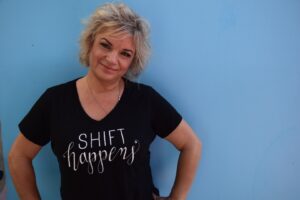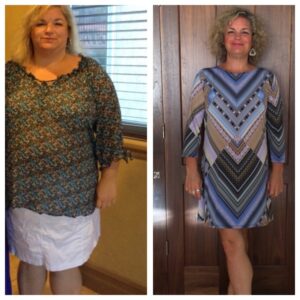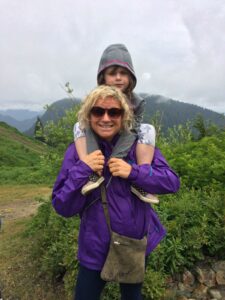
Registering NOW!
- 5-Day Living in Recovery, Jan. 27 – 31
- Alumni Retreat: Relapse Prevention, Feb. 2 – 4
- Primary Intensive, Feb. 6 – 11
Call 941-378-2122 or click here to register on the ACORN website.
Often the start of a new year brings the desire to make commitments and promises to change habits, begin a new health routine or sign up for a new class. This used to mean resolutions around diet and exercise with the sole purpose of losing weight. Whether it was 24 hours or 3 months later, the time ALWAYS came when I just gave up, accompanied with the message, “there you are again; you’re a complete failure with no willpower whatsoever.” I eventually just stopped making New Year’s resolutions.
Then, in January 2015, at Sugar Free Place in Bradenton, I was introduced to abstinence and recovery from food addiction. Each year since then, January brings another 365 days of freedom from food obsession along with awareness and action of what I need to do—one day at a time—for the next 365 days to maintain abstinence and deepen my spiritual, mental and physical healing.
ACORN strongly believes in the importance of staying connected with your ACORN alumni network. It offers a safe place to be accountable and honest with others. The first alumni weekend of 2018 is at Sugar Free Place in sunny (read warm) Florida, February 2-4. The topic—drum roll, please—is RELAPSE PREVENTION!! Anyone, whether currently in strong recovery or in major relapse, can benefit from time set aside to focus on this topic. Feedback from the November Relapse Prevention workshop was overwhelmingly positive.
Relapse can be a scary word. I have every right to be afraid of relapse. It could kill me. While relapse is common in addiction recovery, relapse is not inevitable nor is it mandatory! The more we understand the relapse process, the less threatening it needs to be.
Here are a few facts about relapse:
- We cannot relapse until we have had some period of sustained recovery (meaning complete abstinence from the foods we are addicted to for a period of time after initial detox).
- The relapse process starts long before we take the first bite or pick up our substance.
- Abstinence is ONLY A PREREQUISITE to food addiction recovery; abstinence is not the end of recovery.
- People stop attending 12-Step meetings and working their recovery program because they are already in a relapse process.
- People in relapse are not aware of their individual relapse warning signs as they are happening and don’t recognize them until after the fact.
If you have any interest in avoiding a relapse—or getting out of a relapse—then, this ACORN Alumni Relapse Prevention Weekend is for you. We will cover the facts noted above, as well as much more. This work is crucial for all food addicts on a journey of long-term recovery.
The upcoming Relapse Prevention workshop starts on Friday, February 2, at 6 pm and ends Sunday, February 4, at 3 pm. It is offered at an amazing price of $550 US which includes lodging and meals. The last RP workshop filled quickly, so reserve your spot NOW! Register today at https://foodaddiction.com/programs/registration/.
Join your ACORN alumni and staff for a weekend of recovery support. Who knows, we may even have a little FUN!!
Here’s to an amazing 2018,
Amanda
P.S. Want to deepen your recovery even more? Join us a few days before the Relapse Prevention weekend at our 5-day Living In Recovery Program, January 27-31. Click here for details and more information.

 Happy New Year!!!
Happy New Year!!! I have spent a lot of time with my niece (yes, the one and only Georgia, who, as I am sure you have noticed, I love to squeak into any newsletter that I possibly can) and my other sister’s two dogs in the last month. Wow! Talk about gratitude and staying in the moment; young children and animals are an amazing reminder of how this can be done. They have all taught me some beautiful lessons in the last couple of weeks.
I have spent a lot of time with my niece (yes, the one and only Georgia, who, as I am sure you have noticed, I love to squeak into any newsletter that I possibly can) and my other sister’s two dogs in the last month. Wow! Talk about gratitude and staying in the moment; young children and animals are an amazing reminder of how this can be done. They have all taught me some beautiful lessons in the last couple of weeks. Diabetes affected me personally, and I see its negative effects on the lives of many people that I know, both personally and professionally. And the kicker to this is that having Type 2 Diabetes was, for me, completely avoidable; and this seems to be the same for the majority of people I know who have this diagnosis. We know today that Type 2 Diabetes is oftentimes preventable. For me, the Type 2 Diabetes diagnosis was completely a symptom of my primary disease of food addiction.
Diabetes affected me personally, and I see its negative effects on the lives of many people that I know, both personally and professionally. And the kicker to this is that having Type 2 Diabetes was, for me, completely avoidable; and this seems to be the same for the majority of people I know who have this diagnosis. We know today that Type 2 Diabetes is oftentimes preventable. For me, the Type 2 Diabetes diagnosis was completely a symptom of my primary disease of food addiction.




